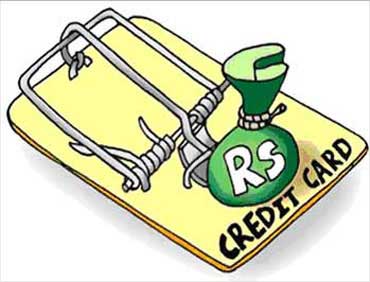 | « Back to article | Print this article |
How to manage your credit card debt
Important points to remember when you think of transferring your credit card balance.
Subash Agarwal, IT professional had unwitting managed to rack up a credit card bill of Rs 1.10 lacs a few months ago. He was unable the pay the amount in full at that time and thus started the saga of rolling balances and mounting debts. Before he knew inspite of having paid Rs 50,000 in the last 6 months, his credit card outstanding was still Rs.92,500/- Most of his payments were going towards services the interest component of the bill. This is when a colleague suggested the idea of a balance transfer to get his debt under control.
A balance transfer literally transfers the balance from one credit card to another one with better terms and low or zero interest rates.
The author is a credit expert with 10 years of experience in personal finance and consumer banking industry and another 7 years in credit bureau sector. Rajiv was instrumental in setting up India's first credit bureau, Credit Information Bureau (India) Limited (CIBIL). He has also worked with Citibank, Canara Bank, HDFC Bank, IDBI Bank and Experian in various capacities.
How to manage your credit card debt
Using the balance transfer option provided by many credit card issuers in India, the interest outgo could be reduced to as low as zero percent for a few months, giving you enough time to arrange funds. Most banks would charge a nominal processing fee for this option.
A balance transfer need not always be from one bank to another. You could approach your current bank for more favourable interest terms and an easier credit repayment period. Most banks are reluctant to lose customers.
Balance transfer is not a standardised product. Each bank offers different terms and conditions and these changes from time to time. Hence it is important to understand and compare the cost of balance transfer to know if is truly beneficial.
How to manage your credit card debt
Pros of balance transfer
Managing multiple cards can be very painful at times. There are also chances that one might not exactly remember the balance in each of the cards. Transferring all the balance in a single card ensures single card use.
On the balance transfer, banks offer a lower interest. This attracts the customer to a greater extent. This lowers your overall burden and helps to repay debt faster.
A balance transfer also acts like a wake-up call to analyse your spending and helps in keeping future finance under control. However, keep in mind not to close your cards as this will reduce your credit limits and impact utilisation and thus can potentially hurt your Cibil score.
How to manage your credit card debt
Cons of balance transfer
In some banks, the rate of interest may be zero in the initial months and they might be higher than your existing lender.
In such cases, remember that the interim relief is just an eye wash. If you are not confident of the repayment abilities, then stay away from such offers.
Most charge a transfer fee, which at times could be as high as 3 per cent of the transfer amount. This fee may lose you all the advantage that you get from a balance transfer.
Usually the amount of balance transfer is limited to 75 per cent of the outstanding amount which means you will have to pay 25 per cent to your previous bank to avail the balance transfer.




